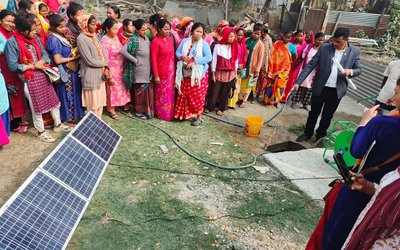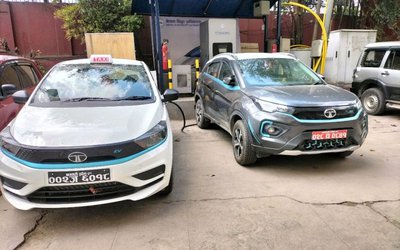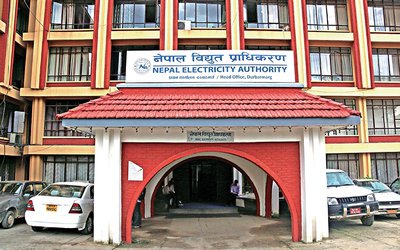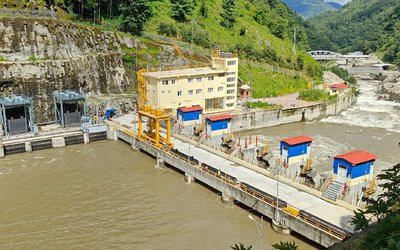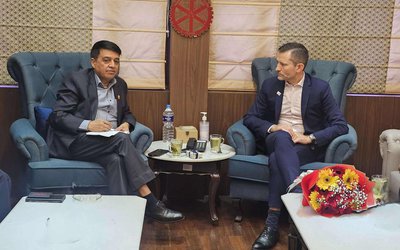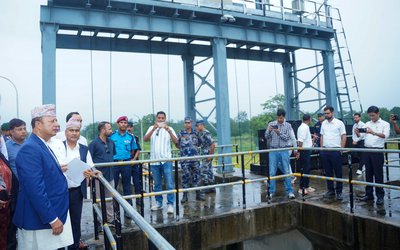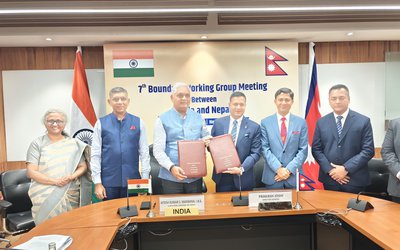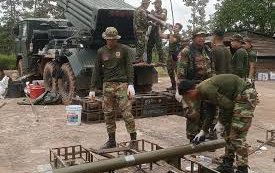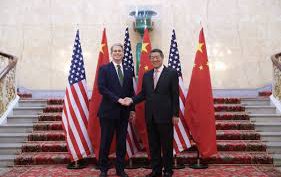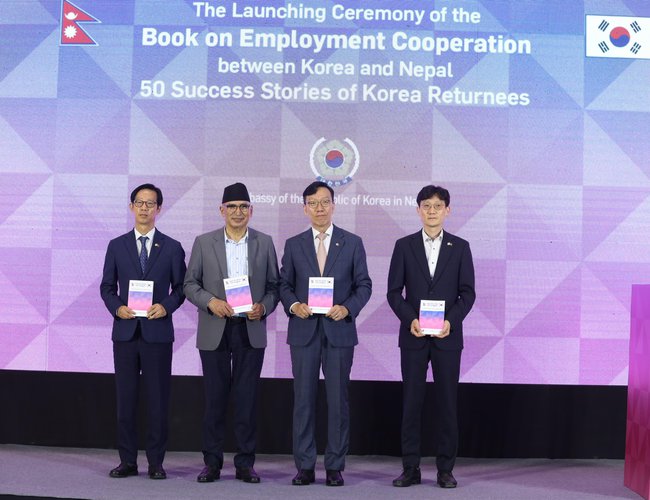
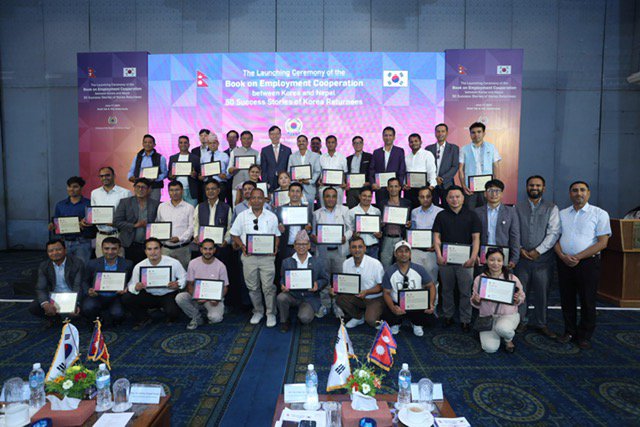
Korea returnee migrants have demonstrated how to achieve success in Nepal by applying the skills they learned in Korea. Deputy Prime Minister and Finance Minister Bishnu Prasad Poudel, along with Ambassador of the Republic of Korea to Nepal Park Tae-young, launched a book titled "You can be the Boss’ Tapai Pani Malik Banna Saknuhuncha," which
features success stories of Nepali returnees from South Korea. The book, written by Shiva Prasad Pokharel, showcases the achievements of returnees in various sectors, including manufacturing, agriculture, services, and education. These success stories highlight the positive outcomes of their work in Korea through the Employment Permit System (EPS).
The book launch event was attended by a large number of media personnel and successful returnees, aiming to inspire and motivate more Nepali youth to explore economic opportunities and make a cultural impact.
Organized by the Embassy of the Republic of Korea in Kathmandu, this is the second book featuring successful stories of returnee migrant workers from Korea.
During the program, Deputy Prime Minister and Finance Minister Bishnu Paudel emphasized the importance of encouraging Nepali youth to seek opportunities within the country. He noted that while Nepal has potential, there is a current lack of individuals looking to build their future within the country.
Finance Minister Paudel highlighted the vast potential of Nepal, a country blessed by nature, and stressed the importance of utilizing these resources to drive prosperity. He emphasized the significance of leveraging skills and capital acquired abroad to accelerate the country's development.
He acknowledged Nepal's rich natural beauty, culture, history, and archaeology, underscoring the need to look towards domestic resources for the nation's future. Minister Paudel recognized the global interconnectedness of today's world, where individuals often move across borders for education, work, or business opportunities.
Encouraging Nepalese youth to utilize their skills and capital gained in Korea for Nepal's advancement, Minister Paudel expressed hope that their contributions would lead the country towards prosperity. He also mentioned that their experiences could inspire others to return home and contribute to Nepal's growth.
Ambassador Park Tae-young of the Republic of Korea highlighted the positive impact of the EPS program, which has enabled over 100,000 Nepalese workers to work in Korea on equal terms with Koreans since 2007. He emphasized that the program has provided valuable opportunities for Nepalese youth to secure employment, return with dignity, and uplift their communities, emphasizing that the EPS program is more than just a labor initiative—it is a partnership for human development.
He expressed our pride in presenting the second edition of this publication, which now includes 50 success stories, nearly double the number from last year's collection of 26, all written by Mr. Shiva Prasad Pokharel. These returnee migrant workers have emerged as drivers of progress in Nepal through their dedication, hard work, and aspirations.
"This book goes beyond being a mere compilation of individual experiences; it serves as a testament to the transformative impact of bilateral employment cooperation between Korea and Nepal under the Employment Permit System (EPS)," stated Ambassador P Park Tae-young.
Kong Moo Heon, the Country Director of KOICA and a special guest at the event, remarked, "It is an honor to represent KOICA at the launch of this new book."
During the event, two Korean returnee migrants who have successfully established industries in Nepal shared their stories of success and the influence of Korean learning on their endeavors.
As Ambassador Park rightly pointed out, "Each person featured in this book embarked on their journey with courage, leaving their homes to work in Korea, where they not only earned income but also acquired skills, discipline, and a vision for their future. Upon returning to Nepal, they invested their earnings, both financially and experientially, in creating businesses, generating local employment, and contributing to their communities. They are now part of a positive cycle of migration, reintegration, and national development."
"These 50 entrepreneurs showcase what can be achieved when opportunity meets ambition. They are not just success stories; they are role models, and their experiences demonstrate that well-managed and mutually respectful temporary labor migration can bring sustainable benefits to both countries."
Ambassador Park also presented letters of appreciation to the Korea returnee migrants during the event.
- Nepal Investment Mega Bank Limited Launches 'Instant EMI' Facility For the First Time in Nepal
- Jul 30, 2025
- GIZ 50 Years Partnership: Energizing Nepal’s Energy Sector
- Jul 30, 2025
- Prime Minister Inaugurates Rani Jamara Kulariya Irrigation Three Years After Completion
- Jul 30, 2025
- Nepal-India Border Working Group Meeting Agree On Inspection And Maintenance e Work Of Pillar
- Jul 30, 2025
- Weather Forecast: Generally Cloudy Across The Country Possibility Of Moderate Rain In Hilly Regions Inclding Sudurpaschim Province
- Jul 30, 2025

